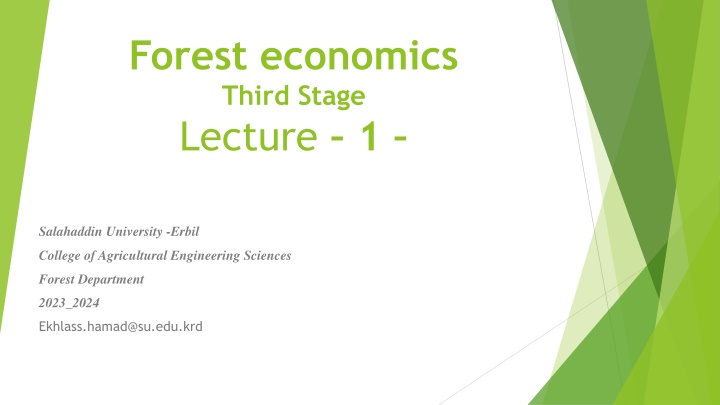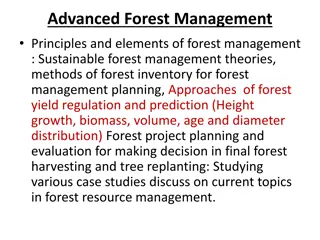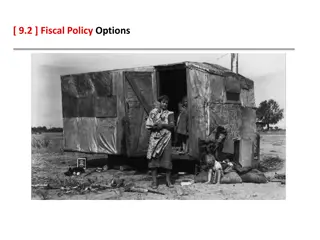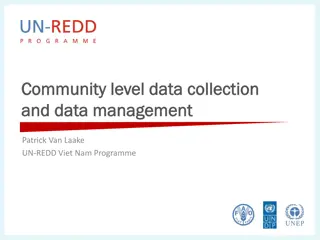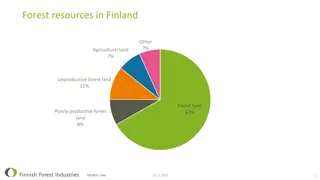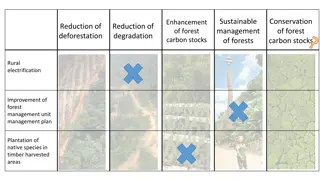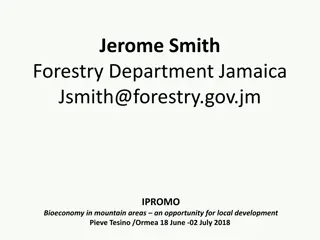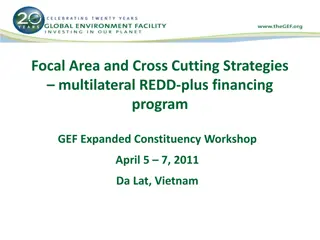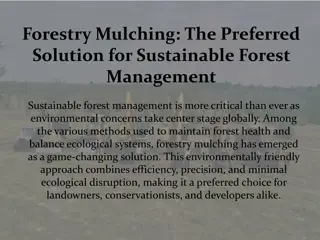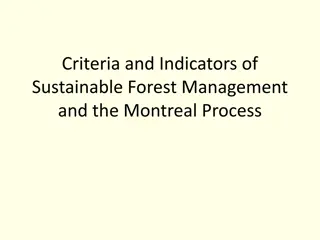Forest Economics: Valuable Insights for Sustainable Management
Forest economics is the study of economic principles applied to the management, utilization, and valuation of forest resources. This field explores the economic benefits derived from forests, including timber production, carbon sequestration, and more. Key concepts in forest economics such as supply and demand, market analysis, cost-benefit analysis, and forest resource valuation play a crucial role in decision-making for sustainable forest management. Economic analysis aids in optimizing forest management decisions to achieve long-term economic returns while considering ecological and social objectives.
Download Presentation

Please find below an Image/Link to download the presentation.
The content on the website is provided AS IS for your information and personal use only. It may not be sold, licensed, or shared on other websites without obtaining consent from the author.If you encounter any issues during the download, it is possible that the publisher has removed the file from their server.
You are allowed to download the files provided on this website for personal or commercial use, subject to the condition that they are used lawfully. All files are the property of their respective owners.
The content on the website is provided AS IS for your information and personal use only. It may not be sold, licensed, or shared on other websites without obtaining consent from the author.
E N D
Presentation Transcript
Forest economics Third Stage Lecture 1 Salahaddin University -Erbil College of Agricultural Engineering Sciences Forest Department 2023_2024 Ekhlass.hamad@su.edu.krd
Definition of Forest Economics Forest economics is the study of economic principles and tools applied to the management, utilization, and valuation of forest resources and their associated services.
Importance of Forest Economics Forests are valuable natural resources that provide numerous economic benefits, including timber production, non-timber forest products, carbon sequestration, and recreation. Forest economics helps in understanding the trade-offs, costs, and benefits associated with different forest management decisions and policies
Key Concepts in Forest Economics Supply and Demand: Understanding the relationship between the supply of and demand for forest products, such as timber, and how it influences market prices and quantities. Market Analysis: Analyzing market dynamics, including price trends, market structure, and competitiveness of forest products in domestic and international markets. Cost-Benefit Analysis: Evaluating the economic feasibility and efficiency of forest management activities, considering the costs incurred and benefits generated. Discounting and Time Value of Money: Recognizing the importance of discounting future costs and benefits to account for the time value of money in forest economics analysis.
Forest Resource Valuation Forest resources have both market and non-market values that need to be considered in economic analysis. Market valuation involves estimating the economic worth of forest products traded in markets, such as timber and non-timber forest products. Non-market valuation methods, such as contingent valuation and hedonic pricing, are used to assess the value of non-market goods and services provided by forests, such as carbon sequestration and recreational opportunities.
Forest Management Planning and Decision-Making Forest economics provides tools and frameworks for optimizing forest management decisions. Economic analysis helps in determining optimal rotation periods, harvesting schedules, and investment decisions to maximize long-term economic returns while considering ecological and social objectives.
Forest Policy and Institutional Economics Forest policies, regulations, and institutional frameworks play a significant role in shaping the economic outcomes of forest management. Economic analysis helps in evaluating the effectiveness and efficiency of forest policies and institutions and in designing mechanisms to promote sustainable forest management.
Forest Economics and Sustainability Forest economics contributes to the goal of sustainable forest management by integrating economic, social, and environmental considerations. It helps in assessing the trade-offs between economic benefits and environmental impacts, identifying opportunities for sustainable livelihoods, and promoting the conservation of forest resources.
